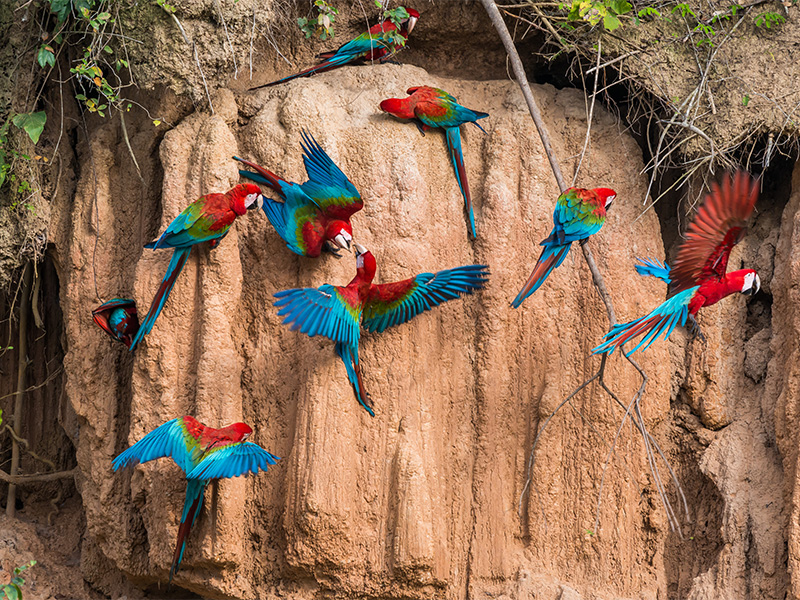In the broadest terms possible, biodiversity can be defined as ‘life on earth’ and over HALF of the word’s biodiversity can be found in Latin America. Across the borders, you will find some of the most species-rich biomes on the planet and it would be no exaggeration to say that the survival of these ecosystems are pivotal for earth’s survival. Below we look at some of the five most biodiverse countries in Latin America and what makes them so.
Estimated to cover up to one-fifth of Earth’s total biological diversity, it is no surprise that Brazil is considered the most biodiverse country on the planet. Covering 60% of the Amazonian rainforest and supported by the Atlantic Forest, the inland swamp of the Pantanal and a literally uncountable amount of other terrestrial and aquatic ecosystems, Brazil leads the way in terms of flora and fauna variety count and 700 new animal species are discovered in the Brazilian borders every year. Monitoring and protecting the natural environment of Brazil remains a colossal task but great strides have been made in recent years to stem the levels of biodiversity loss that previous decades have endured.
Even without the addition of the ecological haven of the Galapagos Islands, Ecuador would still be talked about as being one of the most biodiverse countries in the world. With a prime location in the neotropics, a prominent presence in the Andes and Amazonian Rainforest to the east, Ecuador provides an almost perfect terrain for the myriad of flora and fauna that thrive within its borders. When you do consider the Galapagos archipelago and its native species of wildlife, then Ecuador’s levels of biodiversity erupts and the special responsibility of conservation that the nation bears, becomes even more important.
With such a high density of fragile ecosystems that range from everything from the mountainous terrain of the Andes to the dry forests and wetlands of the country’s verdant interior, Peru faces a series of challenges to protect its natural environment. Commendable efforts have been made and 75% of the endangered species found in Peru are now protected with similar sentiments echoed for the many national parks. The variety of fish species in Peru’s waters are the highest in the world and Peru also ranks in the top five countries globally for amphibians, birdlife, mammals, butterflies and plants.

Per square kilometre, Colombia is the most biodiverse country in the world and whilst this may be news to some, it should not be surprising. Colombia’s ecological richness is simply a byproduct of its variety of ecosystems, and whilst the country is certainly not the largest in the continent, its variety of landscapes and habitats is impressive. Tropical rainforests, the Sierra Nevada and the Andes mountains and the grasslands of the llanos all provide a haven for its flora and fauna. A staggering 130,000 have been documented in Colombia, amongst which, you will find the most species of birds of any country on the planet.
Whilst accounting for only 0.03% of the earth’s surface, Costa Rica contains nearly 6% of the world’s biodiversity. This is partly due to favourable climates and its geographical location which straddles both the North and South American continents, but special mention should also be made to the plausible efforts of the sustainable measures brought in by the Costa Rican government. Whilst the world’s overall biodiversity is declining, Costa Rica’s is increasing and ambitious preservation and restoration processes and helped replenish 60% of its rainforests and the nation has rightly won many accolades for its vision for sustainability.
Ready to start planning your perfect holiday to discover Latin America’s biodiversity? Simply complete our enquiry form and we will get in touch, or call our Travel Specialists on 020 3805 9549.
Leave a Reply